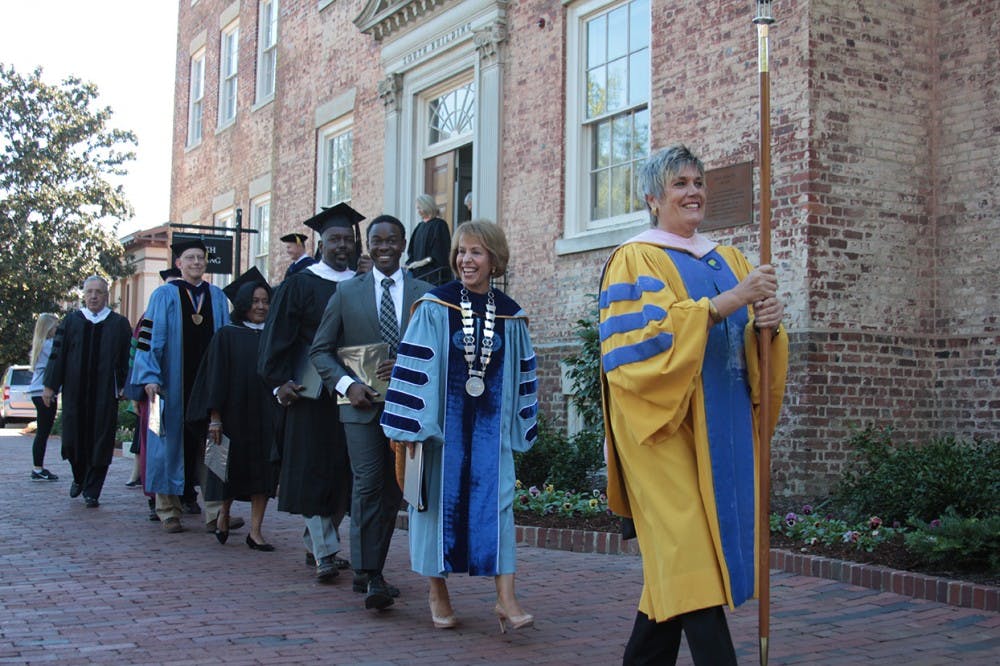“We’re just launching a matching campaign, which is called ‘Give for Good: Scholarship Challenge,’ and this is thanks, in large part, to an incredibly generous gift by a donor alum who prefers to remain anonymous,” she said.
The anonymous graduate donated $10 million to the Carolina Covenant, which helps low-income students graduate without debt, and $10 million to the Morehead-Cain Foundation, which awards merit-based scholarships. Folt said UNC has been challenged to raise another $20 million for scholarships in the next year.
University Day celebrates the initial laying of the cornerstone of Old East, UNC’s first building, on Oct. 12, 1793. This was the University’s 223rd “birthday.” This year, the celebration was moved to Oct. 11 to allow for observance of Yom Kippur today.
Folt and Stephen Farmer, vice provost for enrollment and undergraduate admissions, announced new names for grants and fellowships to honor the history of the University.
The new names of the scholarships and grants, which will be effective in the 2017-18 school year, recognize 21 people who changed UNC.
“These people honor our University with their contributions, and it gives us a chance to use by example and teach by example about these people, what these brave people did, how they paved the way for others and set examples that continue to this day to inspire us,” Folt said. “We really believe that these scholarships bearing their names will motivate other deserving students each year to succeed in their own personal journeys at Carolina.”
The 21 honorees include Sallie Walker Stockard, the first woman to graduate from UNC; Johnston Blakeley, the first graduate to die in action in the U.S. Armed Forces; Henry Owl, the first American Indian student admitted to the University; and the first three black undergraduates at the University, John Brandon, Ralph Frasier and LeRoy Frasier Jr., all of whom graduated from other colleges.
“These newly named grants and fellowships are just a starting point for us,” Folt said. “We pledge to continue finding ways to more accurately share the history of Carolina and to accelerate all of our efforts on inclusion and diversity.”




